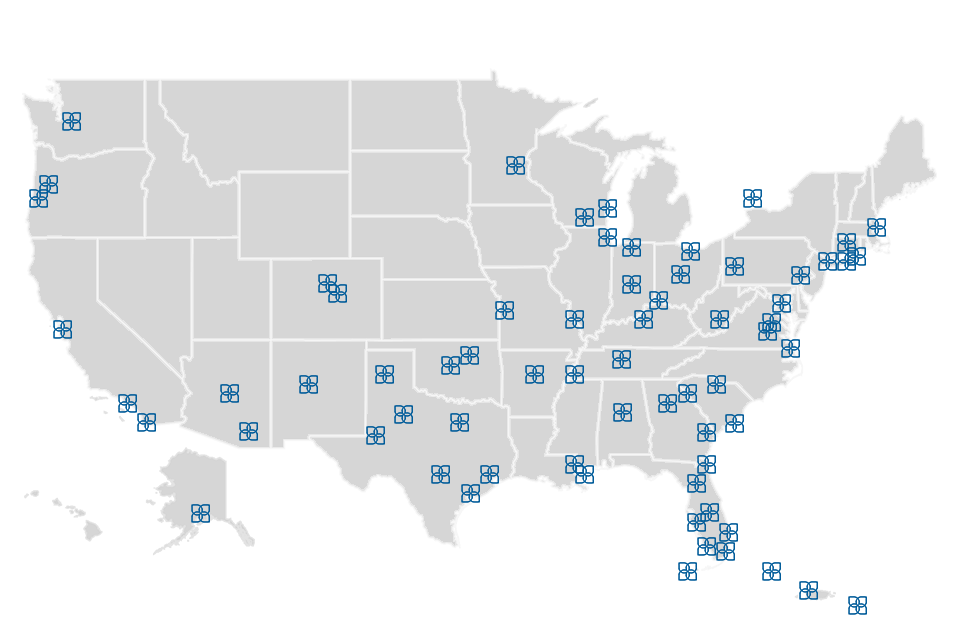This article featuring Lou Plasencia appeared in Hotel News Now on December 24, 2017. View the full article on hotelnewsnow.com.
“Hoteliers see interest-rate increases as new status quo” by Bryan Woten
While a hike in interest rates means the cost of capital is more expensive, hoteliers are taking rate increases in stride as the overall cost remains historically low.
REPORT FROM THE U.S.—The Federal Reserve recently raised interest rates again by a quarter percentage point to range between 1.25% and 1.5%. The general response from the U.S. hotel industry has been a collective shrug.
Fed officials have indicated plans to continue increasing rates incrementally a few times each year. But, with rates still historically low, hoteliers are taking each increase in stride.
In comparison with previous years, lower interest rates are contributing to a lending environment that continues to be favorable for refinancing and buying properties, said Mike Hines, president and CEO of HP Hotels.
With each rate increase, construction financing and acquisition costs will go up and profitability will be lower, he said. But he doesn’t expect the latest increase to affect his company at its current transactional level, he said. Coupled with U.S. tax reform, the rate hike might accelerate the sale of assets, he said, from a purchase pricing perspective.
“At this point, I wouldn’t call it unfavorable,” he said. “I’m not so worried about slight increases in interest rates that have occurred or will occur in the future. I’m more concerned about labor rates.”
Few changes
Generally, hoteliers are able to anticipate interest-rate increases and bake that into their projections, said Rick Rogovin, VP of commercial real estate in the hospitality finance group at Wells Fargo. Even with a flat yield curve, rates over the next couple of years are going to go up, he said, and lenders will try to protect themselves by getting caps or swaps on deals. Borrowers will seek a five-year fixed rate on deals and, when possible, longer terms, he said.
“I don’t think anyone’s perspective is it’s becoming outrageously expensive,” he said. “The cost of debt is expected to go up over the next few years, but I think it’s still going to be very market-driven, very deal-driven. The cost of debt is relatively inexpensive.”
From a real estate perspective, the increase won’t have much of an impact on Peachtree Hotel Group, SVP of Investments Brian Waldman said. The cost of capital has gone up, but the company remains in growth mode and will still acquire companies. The company isn’t looking at refinancing at the moment, he said, and would only pursue it as a means to unlock value in an asset.
Peachtree President and Principal Mat Crosswy said he hopes to see more buying opportunities. The market is in a position in which it can still absorb some interest-rate increases, he said.
Potential concerns
The real problem is the growing costs of labor, insurance and taxes on top of the interest-rate hike, sources said.
“Those are the biggies,” Lou Plasencia, CEO of The Plasencia Group, said.
Further increases in interest rates will definitely affect bottom-line profitability, he said, and that would force hoteliers to take a closer look at distribution and returns on investment. If the overall cost of buying and running a hotel is more expensive, investors looking for a certain return might be less willing to put money into the asset, he said.
“The other thing that owners are doing, at least from what we’re seeing and what we’re experiencing, is they’re holding back on other planned expenditures, like new staff,” he said.
Some owners are looking at refinancing their deals now while rates are low, he said, because they remember when rates were at 12% to 13%.
“I’m seeing a lot of independent owners, long-term owners, go for fixed-rate financing,” he said. “They’re trying to lock in their rates for the long haul while they’re still low.”


